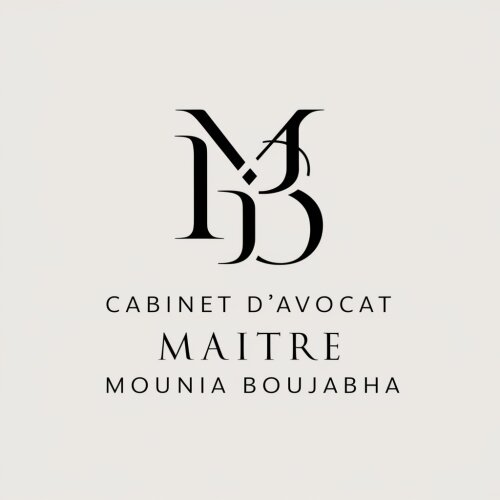Best Divorce & Separation Lawyers in Rabat
Share your needs with us, get contacted by law firms.
Free. Takes 2 min.
Free Guide to Hiring a Family Lawyer
List of the best lawyers in Rabat, Morocco
About Divorce & Separation Law in Rabat, Morocco
Divorce and Separation law in Rabat, Morocco, is primarily governed by the Moroccan Family Code, known as the Moudawana. This legal framework addresses various aspects of marriage, divorce, child custody, and other familial matters. In Morocco, the legal system is a blend of civil law and personal status law, influenced by Islamic principles. Divorce can be initiated by either spouse, but the process entails distinct procedures and regulations that must be followed, making it essential for individuals to understand the pertinent laws and seek appropriate guidance when necessary.
Why You May Need a Lawyer
While some may navigate parts of the divorce process independently, there are numerous scenarios where legal assistance is beneficial. You may need a lawyer if: - You and your spouse cannot agree on key aspects such as child custody or asset division. - There are complex financial situations involved, particularly concerning shared properties or debts. - You want to ensure your rights and interests are protected during the proceedings. - You're unfamiliar with the legal process and need guidance to navigate Moroccan Divorce and Separation laws. - You suspect that your partner is hiding assets or income. - Domestic violence or abuse is involved, requiring legal action for protection and support. - You have questions about the legal implications of an agreement you and your spouse have reached. Overall, a lawyer can provide clarity and representation, ensuring that the process proceeds smoothly and fairly.
Local Laws Overview
The key aspects of the Moroccan Family Code related to Divorce and Separation include: - Types of Divorce: Morocco recognizes several types of divorce, including divorce by mutual consent, repudiation, judicial divorce, and divorce for harm. Each type has specific conditions and requirements. - Role of the Court: All divorces must be finalized through the court to ensure fairness and adherence to legal guidelines. - Child Custody and Support: Child custody decisions are made based on the best interest of the child. Typically, mothers gain custody of young children, but this can change as the child grows older. - Division of Assets: The division of assets and financial matters are addressed according to principles set out in the Moudawana and any prenuptial agreements in place. - Waiting Period (Iddah): For certain types of divorce, such as repudiation, there is an obligatory waiting period for the wife before the divorce becomes effective. By understanding these legal facets, individuals can approach divorce proceedings with greater knowledge and preparedness.
Frequently Asked Questions
What types of divorce are recognized in Morocco?
Morocco recognizes several types of divorce: mutual consent, repudiation initiated by the husband, judicial divorce initiated by the wife, and divorce for harm. Each type has specific legal procedures and requirements.
How is child custody determined?
Child custody decisions are primarily based on the best interest of the child. Traditionally, mothers are awarded custody for young children, but custody may change as the child grows older, depending on various factors.
What is the role of a notary in divorce proceedings?
In Morocco, a notary may be involved in authenticating documents and agreements made between the parties. However, divorce proceedings must be processed through the court to ensure they comply with legal standards.
Can a divorce be obtained without going to court?
No, all divorces in Morocco must be finalized through the judicial system to guarantee legality and fairness.
How are assets divided in a divorce?
Asset division in Morocco is dictated by the marital agreement (if in place) and the Family Code. Factors such as contributions to the marriage and the duration of the marriage may be considered.
What is the Iddah period?
The Iddah period is a legally mandated waiting period for the wife after a divorce is pronounced, particularly in cases of repudiation. It is meant to ensure there is no pregnancy before the divorce is finalized.
Can I get a prenuptial agreement in Morocco?
Yes, prenuptial agreements are legal in Morocco and can dictate the division of assets upon divorce. These agreements must be consistent with Moroccan law and registered with the relevant authorities.
What should I do if I cannot afford legal representation?
If you cannot afford a lawyer, you may seek assistance from legal aid organizations, which can provide guidance and representation based on need and availability.
Is it possible to reconcile during the divorce process?
Yes, the court may encourage reconciliation at various stages of the divorce process. Mediation services are also available to assist couples in resolving disputes amicably if they wish to reconcile.
Will I have to pay alimony or child support?
Alimony and child support are determined based on the income and circumstances of both parties. The court assesses the needs of the children and the financial capacities of the parents when making these determinations.
Additional Resources
For additional support and information, individuals may seek assistance and advice from: - The Ministry of Justice of Morocco, which provides information and resources on family law. - Local family courts in Rabat for direct guidance on legal proceedings and requirements. - Legal aid organizations and non-governmental organizations that offer assistance to individuals navigating divorce and family law issues. - Mediation centers that can help resolve disputes outside the court. These resources can offer valuable assistance to those who require further help or clarification regarding their legal rights and obligations during the divorce and separation process.
Next Steps
If you need legal assistance in Divorce & Separation: - Consult a Lawyer: Reach out to a lawyer who specializes in family law to discuss your situation and get professional advice. - Gather Documentation: Collect all relevant documents, including marriage certificates, financial statements, and any agreements or correspondence with your spouse. - Understand Your Rights: Familiarize yourself with your legal rights and obligations to ensure informed decision-making. - Consider Mediation: Explore mediation services as a way to potentially resolve disputes amicably with your spouse. By taking these steps, you can better prepare yourself for the legal processes involved and ensure your interests are protected throughout your divorce or separation.
Lawzana helps you find the best lawyers and law firms in Rabat through a curated and pre-screened list of qualified legal professionals. Our platform offers rankings and detailed profiles of attorneys and law firms, allowing you to compare based on practice areas, including Divorce & Separation, experience, and client feedback.
Each profile includes a description of the firm's areas of practice, client reviews, team members and partners, year of establishment, spoken languages, office locations, contact information, social media presence, and any published articles or resources. Most firms on our platform speak English and are experienced in both local and international legal matters.
Get a quote from top-rated law firms in Rabat, Morocco — quickly, securely, and without unnecessary hassle.
Disclaimer:
The information provided on this page is for general informational purposes only and does not constitute legal advice. While we strive to ensure the accuracy and relevance of the content, legal information may change over time, and interpretations of the law can vary. You should always consult with a qualified legal professional for advice specific to your situation.
We disclaim all liability for actions taken or not taken based on the content of this page. If you believe any information is incorrect or outdated, please contact us, and we will review and update it where appropriate.










